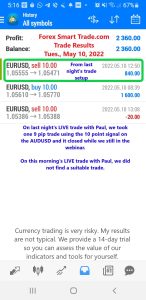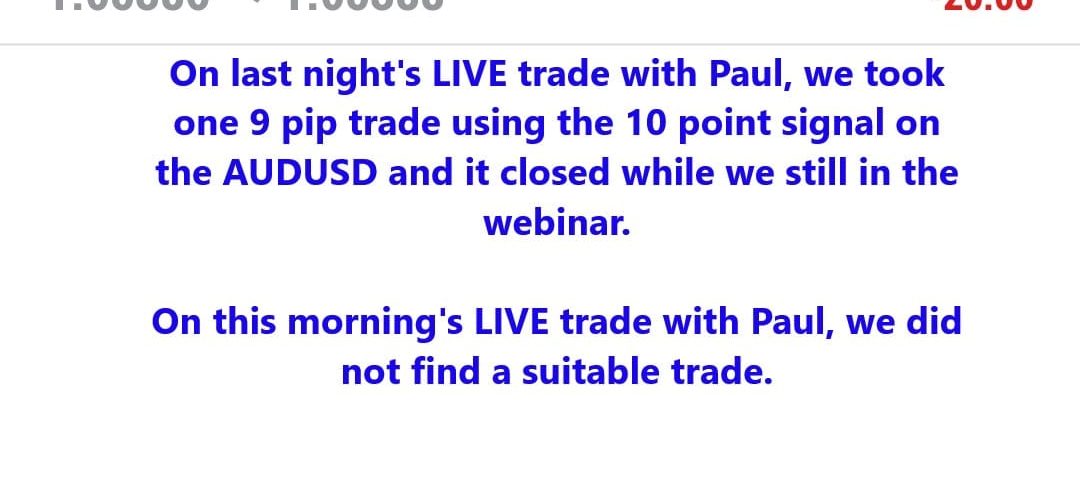Forex Trade Results May 10, 2022 – $2,360

Forex Trade Result May 9, 2022 – $4,170
May 9, 2022
Forex Smart Trade May 11, 2022 – $2,520
May 11, 2022What are the Advantages of Trading With Fixed Spreads?
Fixed spreads have smaller capital requirements, so trading with fixed spreads offers a cheaper alternative for traders who don’t have a lot of money to start trading with.
Trading with fixed spreads also makes calculating transaction costs more predictable.
Since spreads never change, you’re always sure of what you can expect to pay when you open a trade.
What are the Disadvantages of Trading With Fixed Spreads?
Requotes can occur frequently when trading with fixed spreads since pricing is coming from just one source (your broker).
There will be times when the forex market is volatile and prices are rapidly changing. Since spreads are fixed, the broker won’t be able to widen the spread to adjust for current market conditions.
So if you try to enter a trade at a specific price, the broker will “block” the trade and ask you to accept a new price. You will be “re-quoted” with a new price.
The requote message will appear on your trading platform letting you know that price has moved and asks you whether or not you are willing to accept that price. It’s almost always a price that is worse than the one you ordered.
Slippage is another problem. When prices are moving fast, the broker is unable to consistently maintain a fixed spread and the price that you finally end up after entering a trade will be totally different than the intended entry price.
Slippage is similar to when you swipe right on Tinder and agree to meet up with that hot gal or guy for coffee and realize the actual person in front of you looks nothing like the photo.
What are Variable Spreads in Forex?
As the name suggests, variable spreads are always changing. With variable spreads, the difference between the bid and ask prices of currency pairs is constantly changing.
Variable spreads are offered by non-dealing desk brokers. Non-dealing desk brokers get their pricing of currency pairs from multiple liquidity providers and pass on these prices to the trader without the intervention of a dealing desk.
This means they have no control over the spreads. And spreads will widen or tighten based on the supply and demand of currencies and the overall market volatility.
Typically, spreads widen during economic data releases as well as other periods when the liquidity in the market decreases (like during holidays and when the zombie apocalypse begins).
For example, you may want to buy EURUSD with a spread of 2 pips, but just when you’re about to click buy, the U.S. unemployment report is released and the spread rapidly widens to 20 pips!

Learn to Day Trade Forex
If you’d like to earn extra income trading on the Forex market, consider learning how to currency trade with Forex Smart Trade. With their super-accurate proprietary trading tools and best-in-the-business, personalized one-on-one training, you’ll be successful. Check out the Forex Smart Trade webinar. It shows one of their trader’s trading and how easy, intuitive, and accurate the tools are. Or try the Forex Smart Trade 14-day introductory trial for just TEN dollars.


